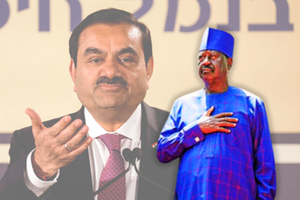
Cabinet Secretary for National Treasury and Economic Planning Prof Njuguna Ndung'u.
| File | Nation Media GroupBusiness
Premium
Treasury faces uphill task of raising Sh2trn in six months
The government faces pressure to raise Sh2.226 trillion in revenue in the six months to June this year, an analysis by a public-funded think-tank showed after it only collected Sh1.4 trillion in tax and non-tax revenue in the six months to December 2023-- accounting for 38 percent of the targeted Sh3.66 trillion in the current financial year.
An analysis of the country’s fiscal performance by the Kenya Institute of Public Policy Research and Analysis (Kippra) reveals that the government faces immense fiscal pressure amid limited contingency funds.
“The exchequer balance as a percentage of actual revenue, a key indicator of fiscal health, was quite low at 0.1 percent as of December,” Kippra said in its latest market analysis report.
Kippra is an autonomous public institute created to conduct objective research and analysis on public policy issues to provide advice to policymakers.
In the period, the money raised by State from both taxes and loans decreased by 9.6 percent in the three months to December 2023 to Sh695.9 billion, compared to the Sh770 billion posted in a similar period in 2022, indicating falling revenue performance despite increased mobilisation efforts.
Ordinary revenue was the worst performer in the period, with the Kenya Revenue Authority (KRA) collecting only Sh1.02 trillion in the first half-year, representing 39.6 percent of the Sh2.57 trillion annual target, according to Treasury data.
The State got Sh266 billion and Sh75.6 billion from domestic and foreign debt respectively in the period, based on Kippra’s analysis, accounting for 51 percent and 38 percent of the annual targets in that order.
At the same time, expenditure in the first half was Sh1.4 trillion, of which development spending accounted for just 11 percent, about 10 percentage points less than the expectation, reflecting an impact of the revenue shortfall.
Disbursement to counties for the six months also dwindled to Sh142.5 billion, which is over five times less than expected county allocation for the entire year, causing delays in the devolved units.
This comes amidst warnings by public finance experts that failure to meet this year’s revenue targets will lead to undesirable development spending cuts given the country’s growing debt vulnerability that limits borrowing capacity.
For instance, the Institute of Public Finance (IPF), an independent think tank, last week warned that failure to meet the revenue targets will force the government to cut crucial pro-poor development spending such as health, education, water, sanitation and hygiene.
The revenue shortfall defies the government’s new tax measures – including a doubling of VAT on fuel and a new income tax band – introduced last year ostensibly to boost ordinary revenue collection. “These measures have proven ineffective. More so, raising tax on fuel has become counterproductive as it overly impacts all other costs,” said IPF chief executive James Muraguri.
“A consistent gap in tax administration has been low compliance levels, creating the need for KRA to work on enhancing voluntary compliance and enhanced enforcement to boost revenue."
“In addition, given that the government has recommended a reduction in the CIT (Corporate Income Tax) rate from 30 percent to 25 percent. It would be important for the government to reduce revenue leakages by eliminating redundant tax expenditures that have cost the country an average of 2.5 percent of GDP in foregone revenues.”




